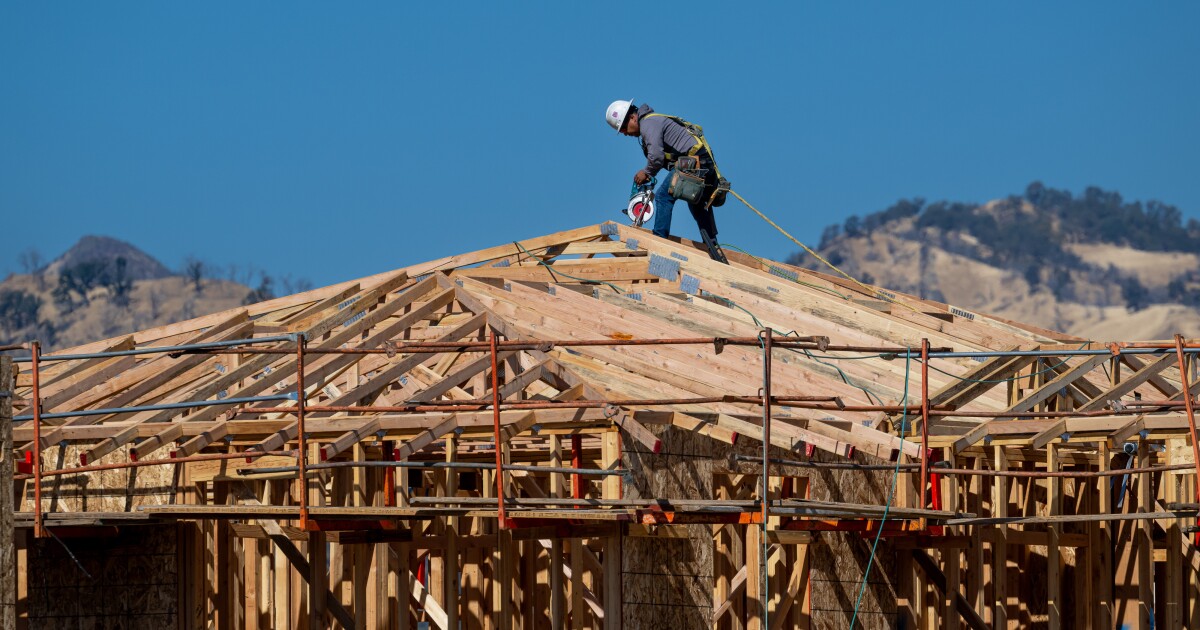
With the average mortgage rate near 6%, US homebuyers are looking at the most affordable monthly payments in a year. But San Antonio real estate agent Tavyn Weyman knows how to get them lower — much lower.
The trick is simple: buy new.
In markets across the US, homebuilders sitting on unsold inventory are subsidizing mortgage rates so heavily they sometimes match the record lows last seen during the Covid-19 pandemic. That's in addition to perks like free appliances, finished basements and zero closing costs.
Weyman said a large private builder just gave one client a 3.49% fixed rate on a $414,000 home on the west side of town. The sales agent even bumped up Weyman's commission to cover the cost of breaking the buyer's lease and threw in another $2,000 to make the first month effectively free.
READ MORE:
"You want to pay $2,000 a month on a brand new 4-bedroom home and have a 2% rate, I can find that now — as crazy as that sounds," Weyman said. "It's all negotiable."
A single mother relocating from Florida is interested in a 3.99% fixed rate offered by D.R. Horton Inc., the biggest US builder by stock market value. But it's the introductory rate of less than
These aren't the perks of a healthy housing market. They're the tactics of an industry trying to get the attention of buyers as tariffs, a government shutdown and artificial intelligence add to feelings of job insecurity.
Year-to-date job cuts have exceeded 1 million, the most since the pandemic, according outplacement firm Challenger, Gray & Christmas. Last month alone firms announced 153,000 cuts, the most for any October since 2003.
The anxiety is taking the wind out of a prophesied jump in homebuyer demand as mortgage rates decline.
"We would have expected to see a little bigger bump out of the reduction in mortgage rates that we've seen," D.R. Horton Chief Executive Officer Paul Romanowski said on a call with analysts last week. "It truly is choppy."
READ MORE:
Other builders have shared disappointing feedback from the market. Century Communities Inc. in an earnings call said demand is especially weak from entry-level buyers. PulteGroup Inc. said first-time buyer orders plunged 14% in the latest quarter compared with a year earlier.
"Lower interest rates are a positive for housing demand, but rates don't operate in a vacuum," Ryan Marshall, chief executive officer of PulteGroup, said in an earnings call last month. "There is a clear offset if rates are coming down because the economy is slowing and people are worried about their jobs."
A big obstacle for new sales agents is that renting is now much cheaper than buying. Rents are starting to dip, and landlords are reporting
Meanwhile, resale listings are no longer in short supply, giving buyers plenty of other options. Still, few are biting. Pending sales stalled in September, still barely above record lows.
"The existing market is a much more formidable competitor to the homebuilders than it has been for a long time," said Mark Zandi, chief economist at Moody's Analytics. "There's a lot of angst about job security, given there is no hiring. And artificial intelligence is coming on."
For the first time, the price for a typical new home in July and August was cheaper than that of an existing home, according to a John Burns Research & Consulting analysis of Census and National Association of Realtors data. The average premium since 1973 was 16%. The analysis doesn't include incentives.
READ MORE:
Production builders spent an average of 7.5% of sales prices on incentives in the three months ended August, up from 4.8% in May 2024, according to the company's builder surveys.
"There is an opportunity to buy new homes at really low rates," said Eric Finnigan, vice president at John Burns. "The big surprise is why sales are still so soft."
But not all rate buydowns are created equal. Some permanently lower borrowing costs for a full 30-year term, while others keep rates low only temporarily. Those deals can work well for households expecting rising income or a future refinancing — but they carry real risk for borrowers who aren't prepared for the jump in monthly payments once the promotional period ends.
Lennar Corp. is in the midst of a nationwide "Inventory
The strategy of undercutting the resale market seems to be working, at least according to Weyman. The agent in San Antonio said seven of the eight homes he sold this year were newly built.
"New home buyers are expecting a lot of things so you've got to get them more," Weyman said. "I always advertise that I'm never going to make a client pay for closing costs, especially now."



